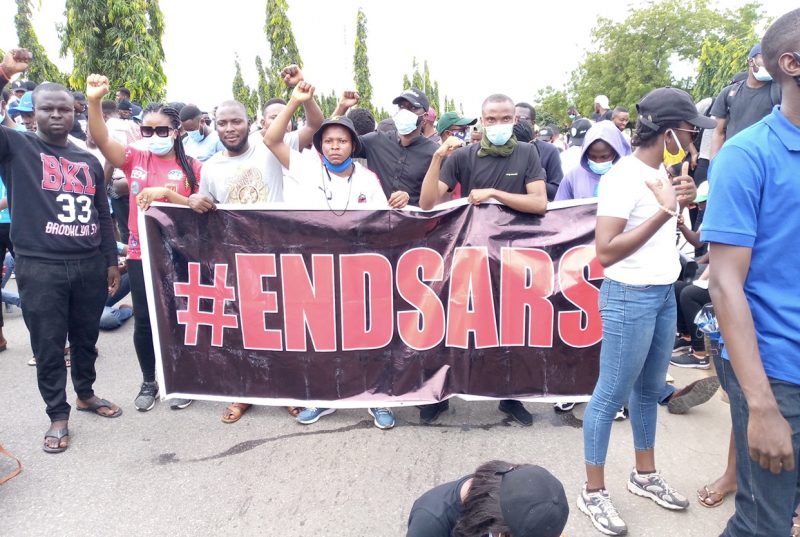The judiciary as one of the three arms of government seems to be the weeping boy of the executive and legislature in the Nigerian political system, as against the norm in other democratically civilized countries.
As part of efforts towards ensuring the judiciary is independent and able to discharge its duties effectively without going cap in hand to beg for funds from the federal and state governments, President Muhammad Buhari, pursuant to Section 5 of the 1999 Constitution of the Federal Republic of Nigeria, he decided to give effect to the provision of (Fourth Alteration, No.4) Act, 2017 ACT No.7 Constitution of the Federal Republic of Nigeria 1999, by issuing the Executive Order No. 00-10 of 2020 granting the States Legislature & Judiciary financial autonomy.
This alteration seeks to provide for the funding of the Houses of Assembly of States directly from the consolidated revenue fund of the State by substituting for subsection (3) of Section 121 of the Principal Act which formerly read.
According to the Act; “Any amount standing to the credit of the judiciary in the Consolidated Revenue Fund of the State shall be paid directly to the heads of the courts concerned” a new subsection (3) which now reads: ‘‘Any amount standing to the credit of the – (a) House of Assembly of the State; and
(b) Judiciary; in the Consolidated Revenue Fund of the State shall be paid directly to the said bodies respectively; in the case of the judiciary, such amount shall be paid directly to the heads of the courts concerned.”
However, despite the fact that a Presidential Implementation Committee was constituted to fashion out strategies and modalities for the implementation of financial autonomy for the State Legislature and State Judiciary in compliance with section 121(3) of the Constitution of the Federal Republic of Nigeria, 1999 (as Amended); taking into considerations all other applicable laws, instruments, conventions and regulations, which provides for financial autonomy at the State tier of Government, state governments are yet to comply with the Executive Order, thereby leaving the judiciary at their mercies.
In the real sense, the implementation of the Order Will according to the federal government would ensure the implementation of financial autonomy of the State Legislature and State Judiciary, as well as strengthen the institutions at the State tier of Government and make them more independent and accountable in line with the tenets of democracy as enshrined by the Constitution of the Federal Republic of Nigeria 1999 (as Amended).
According to a senior lawyer, Olisa Agbakoba, (SAN), the necessary reforms must be undertaken in the judiciary to promote the rule of law.
In his words; “However, when independence of the judiciary is mentioned, most people understand it in terms of being free from external influences. Such overwhelming influences exerted on the judiciary are usually manifest from the executive arm of government, majorly. Although it is normal across the globe for politicians to try to meddle with the activities of the judiciary, strong judicial institutions are also smart enough to ward off such irritations. But most stakeholders believe the judiciary would do better if it succeeds in achieving fiscal autonomy above all other things.”
The lawyer argued that if the judicial funds are part of expenditure charged upon the Consolidated Revenue Fund, it goes without saying that the constitution excludes judicial funds from the annual budget estimates of the Executive, which is the Appropriation Bill. In ordinary words, the President, he explained, is not supposed to include funds meant for recurrent expenses, remuneration, salaries and allowances of judicial officers in the Appropriation Bill. “Such funds should be drawn directly from the Consolidated Revenue Fund of the Federation outside appropriation practice,” he stressed, insisting that the only fund relating to the judiciary that is subject to appropriation is the capital expenditure because it is not provided.
Equally, the former chairman of the National Human RightCommission, NHRC, Prof. Chidi Odinkalu lamented that it was for the problem of emasculating the judiciary financially, that Dr. Agbakoba sued the federal government and got a favourable judgment for the sector.
“He had sued and got the judgment affirming autonomous funding of the judiciary, which President Buhari sought to implement with Executive Order 10. But how do you speak of judicial autonomy when all over the country, the All Progressive Congress, APC, governors, as well as the Peoples Democratic Party, PDP, governors, are outdoing themselves in suborning the judiciary, with things like used car gifts, lands and houses to them?” he queried.
Odinkalu asked whether the judges, upon who the crusade is meant for, want to be autonomous? According to him, if the judiciary wants to be independent, it has to stand up for its institutional and vocational autonomy.
However, the state governors are not helping the issues concerning judicial autonomy, in the sense that the judiciary among the three tiers of government seems to lack in every aspect.
The governors in not doing the needful did not comply with the directive that, directed every state government to set up a committee comprising the Commissioner of Finance, the Accountant-General of the State, a representative of the state’s Budget Office, the Chief Registrar of the High Court, Sharia Court of Appeal and Customary Court of Appeal as applicable, the Clerk of the House of Assembly and the Secretary of the State Judicial Service Committee or Commission. This committee is to be accorded legal recognition in the appropriation laws of the states. The committee’s main task is to, where applicable, determine based on the revenue profile of the state, a workable budget for each arm of the state government.
The executive order also provides that each state judiciary is to set up a state judiciary budget committee, which would be responsible for preparing, administering and implementing the budget of the judiciary. The committee would comprise of the state’s Chief Judge as Chairman, the Grand Kadi of Sharia Court of Appeal or President of Customary Court of Appeal as applicable, and two members of the Judicial Service Committee/Commission to be appointed by the Chief Judge. The Chief Registrar is to serve as Secretary of the committee.
The lack of financial autonomy for the legislative and judicial arms of government has been a long-standing issue, especially with respect to the judiciary, which was even guaranteed such autonomy prior to the 4th Alteration. The desire to uphold judicial financial autonomy led prominent Senior Advocate of Nigeria, Olisa Agbakoba, to file a suit against the Attorney-General of the Federation (AGF), the National Judicial Council (NJC) and the National Assembly in February 2013. His suit challenged the extant methods of appropriating the judiciary’s budget in the Appropriation Bills, as opposed to being a first-line charge paid directly to the judiciary. He contended that this was contrary to the constitutional provisions of Section 81(3) of the 1999 Constitution.
With the above, how can the judiciary which is seen as last hope of of the common man perform effectively.





